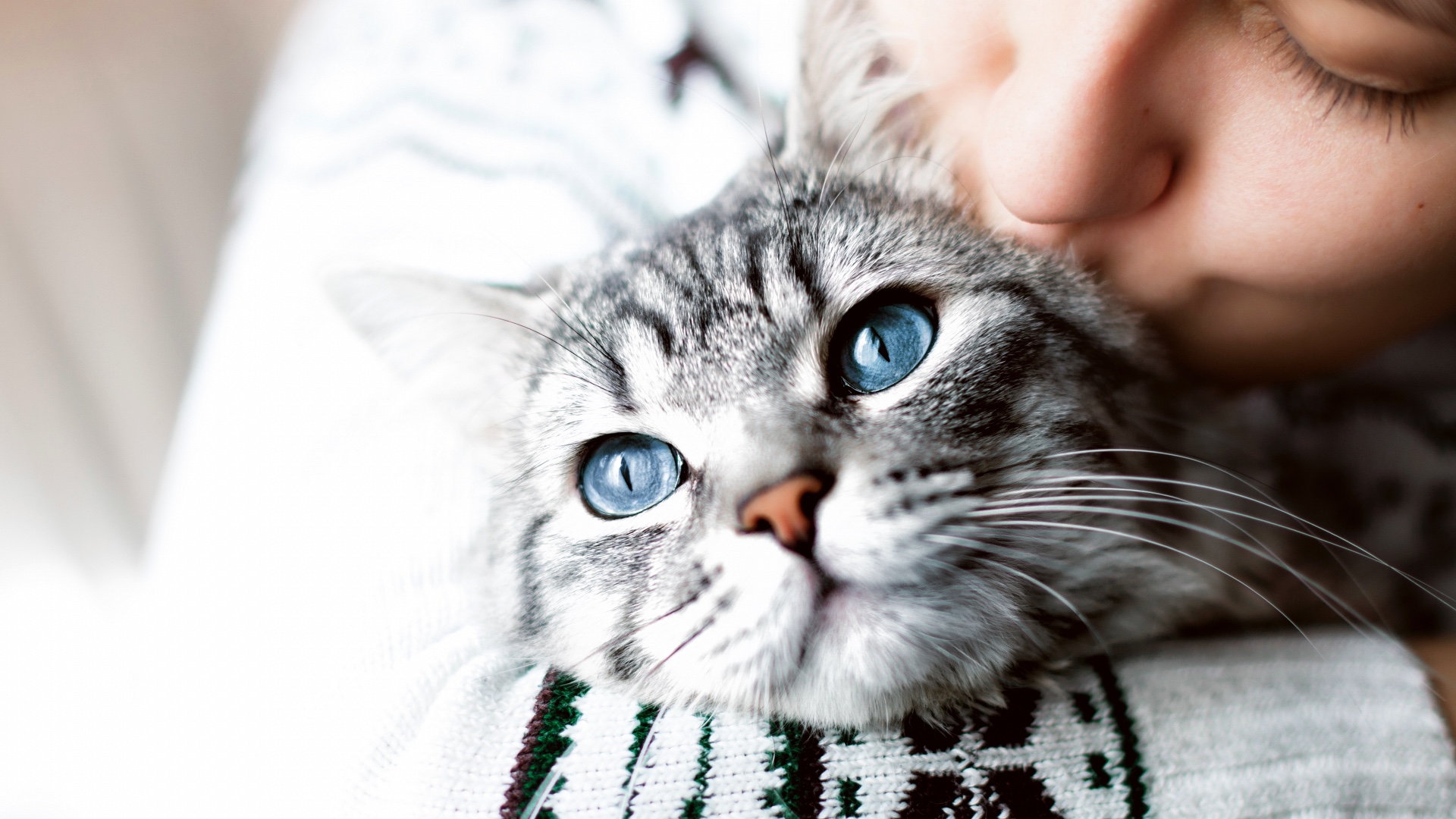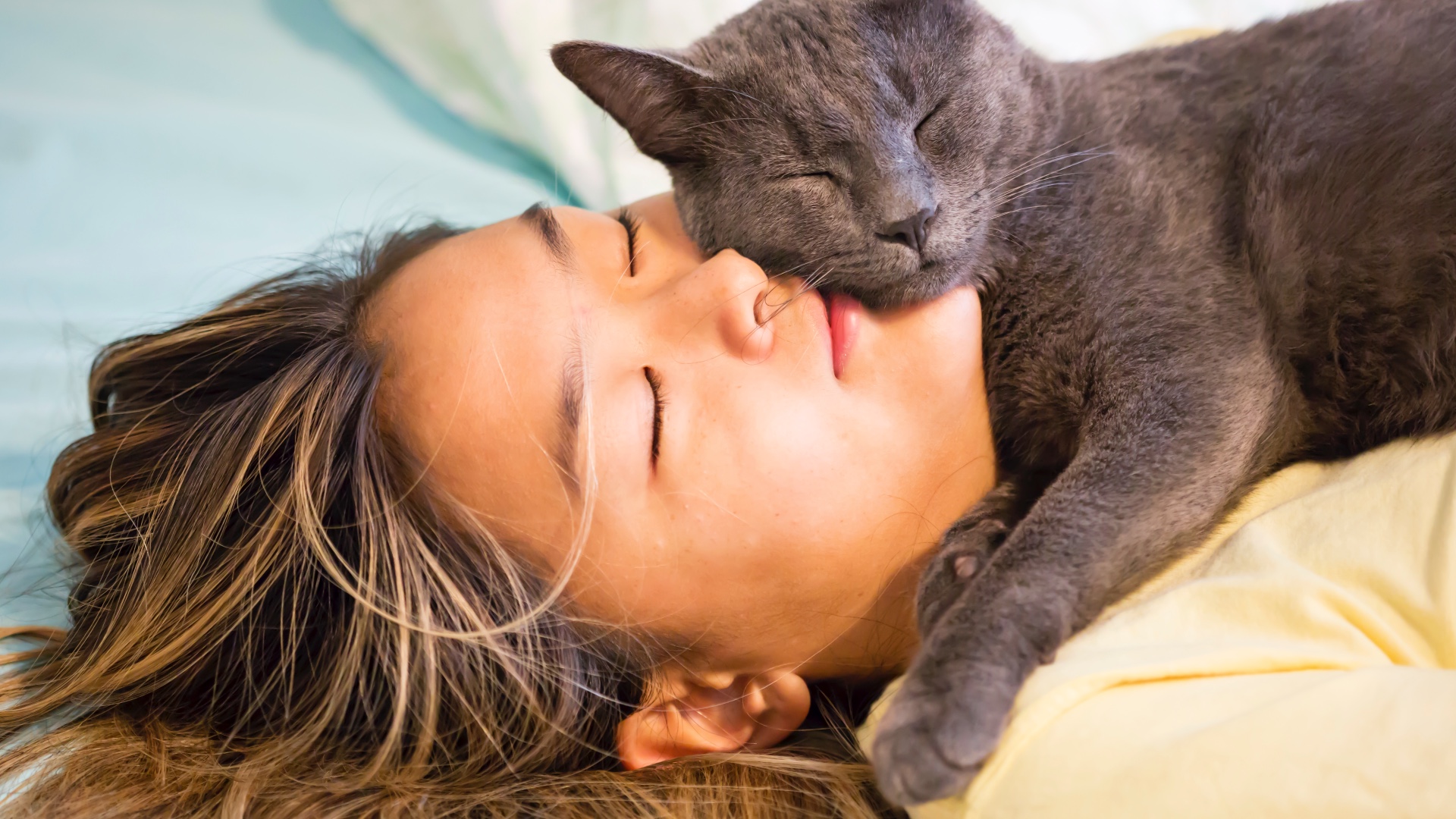Do cats miss their owners? 6 ways to tell and how to help them cope
The question 'do cats miss their owners?' is a common one amongst pet parents. Here are some signs your feline furkid might be feeling your absence...

Get the best advice, tips and top tech for your beloved Pets
You are now subscribed
Your newsletter sign-up was successful
If you’re the proud pet parent to a feline furkid and often find yourself on the other end of some chilly behavior when you return after a lengthy absence, then chances are you’ve found yourself asking the question ‘do cats miss their owners?’ on more than one occasion.
In fact, many owners report arriving home to find their kitty either actively giving them the cold shoulder or being totally indifferent, so it’s no surprise that you’ve found yourself wondering whether your cat is holding a grudge or even notices when you’re gone!
We’ve known for a long time that cat communication is complex and far less easy to decipher than that of our canine companions, and while the research is divided on whether cats miss their owners in the same way as dogs, what is clear is that they still desire your love and affection.
Below we dive into the evidence to find out if your cat misses you when you’re not around and the cat behavior to look out for that reveals that they may care about your absence more than you think.
Do cats miss their owners?
The hearts and minds of our feline friends are complex places to go wandering about in, but thankfully, some brave researchers have done just that and they’ve turned up some interesting and rather contradictory findings.
In one camp sit those who believe that not only do cats not miss their owners, but that they’re fully aware that they don’t need humans in order to survive. A 2015 study carried out at the University of Lincoln concluded that unlike dogs, cats don’t need people in order to feel protected.
Cats know that they’re independent and capable of surviving on their own and while the study showed that cats are still able to form deep bonds with their chosen people, they don’t need them to feel safe and secure in the same way that dogs do.
Get the best advice, tips and top tech for your beloved Pets
But while the study showed that the highly autonomous nature of cats means they don’t miss their owners in the same way that dogs do, there are plenty of experts that disagree.
One of those is Tim Link, an animal expert and author of the book “Talking with Dogs and Cats: Joining the Conversation to Improve Behavior and Bond with Your Animals,” who believes that cats experience separation anxiety just as much as dogs do when their humans go away.
“Cats can suffer from separation issues just like dogs do. Some handle it better than others but, they all want to know what’s going on when we leave the house. They want to know when we are going to return home and want to make sure we arrive when we say we are going to. Our cats can be just as concerned as our dogs when we leave and just as excited when we arrive. It doesn’t matter if we are simply going to check the mail or are going to be gone for multiple days.”
However, Link also points out that just like us humans, every cat is unique and how much they miss their owners will exist along a continuum, with some cats being naturally more aloof and others being more attached.
So, with nobody being quite sure of whether cats miss their humans and if they do, to what extent, how do you know whether yours does or whether they truly are indifferent? Here are some sure signs to help you crack the cat communication code!
Signs your cat misses you

1. Purring and stretching when you get home
A 2017 study conducted in Sweden found that cats and their owners showed a higher level of interaction with each other when they’ve been separated for longer periods of time, suggesting that when it comes to our feline friends, absence truly might make the heart grow fonder.
Researchers found that when cats reunited with their owners after periods apart, they purred more and showed more body stretching which indicated an increased motivation to re-establish the relationship.
If you notice that you return home and your cat purrs or engages in extra stretching, that’s a good sign your feline fur baby has missed you while you’ve been away.
2. Affectionate gestures
While a dog will literally bowl its owner over the minute they walk back through the door, a cats expression of affection is more subtle and can be easy to miss if you don’t know what to look for.
Next time you return after a period of being away from your kitty, pay close attention to the way they behave around you. Are they wanting to spend more time on your lap? Do they keep rubbing up against you? Are they wanting to petted more?
All of the above affectionate gestures are your cat’s way of letting you know they love you and miss you when you’re not around.
3. Shadowing behavior
Another common way your cat might show you that they’ve missed you is to become your second shadow, following you from room to room and refusing to leave your side.
For many cats, having their owners close by after a period of absence helps them to feel safe and secure again. Not only is it a great compliment and shows how much they love you, but it’s also their way of reconnecting with you.
4. A change in demenour
As we saw above, while separation anxiety is most commonly associated with dogs being separated from their humans, cats can experience it too. In fact, a 2019 study is disproving earlier research by showing that cats living with humans have a very similar attachment style to their parents as dogs do.
If you notice any of the following signs in your kitty, it could be that they’re experiencing separation anxiety:
- Urinating or deficating outside the litter box
- Excessive vocalization, such as meowing or yowling
- Destroying things
- Excessive grooming
- Becoming hyper-attached to you
Managing separation anxiety can be as simple as providing plenty of the best cat toys to keep your kitty occupied when you’re away from home or using a chill-out gadget, such as Feliway, to help reduce stress.
5. Acting out
While acting out may not seem like a sign that your cat missed you, it’s sometimes the only way they know of expressing how they’re feeling. Your cat may scratching the furniture while you’re out instead of using their scratching post or urinate around the house instead of in their litter box. A lonely cat is often a destructive cat.
How to help your cat cope with being alone
If your cat is really struggling with you being gone, there are a few things you can do to help make those times apart easier for them.
1. Enrich their environment
One of the best ways to make your cat’s environment more physically and mentally stimulating is to invest in lots of quality cat toys. In particular, the best automatic laser cat toys are great for keeping your kitty entertained.
Aside from toys, a cat tree is another worthwhile investment that not only gives your kitty somewhere to snooze but also something to climb. Many also double up as scratching posts and also come with balls your kitty can bat about.
2. Make it cozy and comfortable
If you know you’re going to be out for a while, top up your cat’s food and water bowls, move their cat bed into their favorite spot, and refresh their litter box. While these things may seem small, they can make a big difference to how comfortable your kitty feels while you’re away.
3. Get a friend to pop in
Another great option if you have a cat who’s particularly prone to separation anxiety is to get a friend or neighbor to pop in during the day and spend some time with them. This is especially useful if you spend long periods out of the house throughout the week as it can give your feline furkid someone to interact with, which can give their wellbeing a boost.
Read next about the sign of grief in pets

Kathryn is a freelance writer who has been a member of the PetsRadar family since it launched in 2020. Highly experienced in her field, she's driven by a desire to provide pet parents with accurate, timely, and informative content that enables them to provide their fur friends with everything they need to thrive.
Kathryn works closely with vets and trainers to ensure all articles offer the most up-to-date information across a range of pet-related fields, from insights into health and behavior issues to tips on products and training.
When she’s not busy crafting the perfect sentence for her features, buying guides and news pieces, she can be found hanging out with her family (which includes one super sassy cat and a kitten), drinking copious amounts of Jasmine tea and reading all the books.
She has written for a range of publications, including Fit&Well, Top Ten Reviews, LiveScience, Goodto, and Product Hunt.
